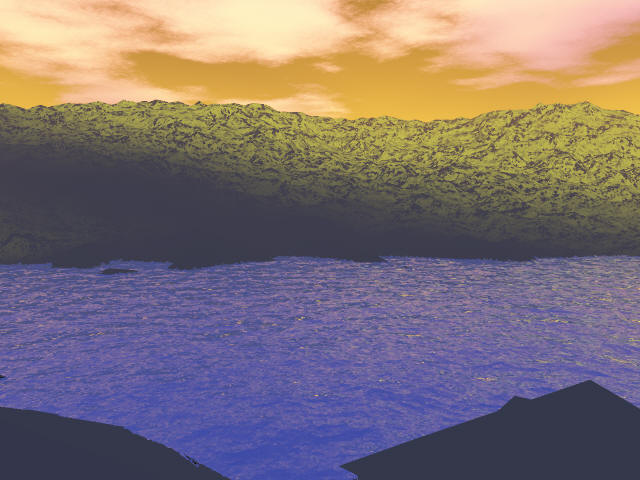
The ancient languages that grew and developed in the Northern reaches of Allyanna in the Second Age of Men were believed to be closely related to the secret tongue of the Nephilim. The Nephilim were taught to speak by the Kandar of Casti in the ages of Jinn. Some of the Kandar are believed to have survived the Great Flood and their ancient language was passed down long after the Kandar passed into legend. The language of the Kandar was adapted by the descendants of Magog who were horsemen and goatherds in Eastern Casti (Russia). Those people whom historians now call the Aryans or the Indo-Europeans distorted the antediluvian language and mixed it with others includiong the Helens and the Parthians. In time their language became the basis of Persian, Gaelic, Gothic, German, Norse, Hindi, Turkic, Altaic, Uzbek, Latin, Russian, English, Spanish and a variety of other western tongues.
With this information we can piece together some of the old Northern Allyannan scripts to resemble the ancient languages of Europe and Central Asia. Whenever an (Ö, ö) is used in a word especially when it followed by an (E, e) we know this makes a vowel sound similar to the one in the English word book or look, never would it make the vowel sound in poke or yolk. We can also discover that the letter Š (eth) and its lower case form š makes the same sound as the soft th in the word thin. The letter Ž (thorn) and its lower case ž make the voiced th in the word there and then.
The language of Dosterrans and the Urdai is believe to the same language spoken by the Setai of Arrartia, and the Rissyngas of Not. This language did have similarities to that of the Kandar and to the Nephilim. But on Nosterras the language was destroyed not long after the Great Flood when the people tried to rebuild the ancient tower of Eddik Not and Yahleohym destroyed it and confused their languages. The language of the Setai was supposedly kept by Shem, Noai's son, and became the root for most Semitic languages including Chaldaen, Akkadian, Sanskrit, Arabic, Hebrew, Aramaic, and possibly even Coptic.
The Troatians of the First age spoke a romanticized version of Dosterran that tried to make beautiful word of the sea and life and riches and love. They changed the pronunciation of Dosterran words to make them a grand feeling: oifen became oifynnu (child). The Troatians also helped influence change in the language spoken in the Citadel. The old word for mankind adannei became mixed with naubibaua the Dosterran word for hero or lord and thus the word anuba for great heroic person which became the basis for Naumiba's new name, Aniba.

Asole River Valley Near Aitombul, looking West
Translator
| English | Dosterran/Urdai | Old Troatian | Druittian | Old Noršricladic |
| Animal | Kay | Kavala | Cavan | Harosbese |
| Apple | Epl | Evenol | Ronoal | Pariroun |
| Bear | Kay, Brunakay | Karar | Chirkros | Byorne |
| Beast | Kay, Ronkay | Kaythe | Karakrain | Bavalo |
| Beauty | Meloo | Melaleen | Maralie | Deyus |
| Bed | Saldor, Saladore | Ahriod | Ariad | Bethe |
| Beginning | Instili, Ins- (prefix) | Nufano, Nufa- (prefix) | Nufan Nu- (prefix) | Janne |
| Big | Krossire | Karanile, Kro- (prefix) | Krol | Gresse |
| Book | Anale | Scarte | Carocte | Boke |
| Breast | Harana | Kakoom | Chume | Heldi |